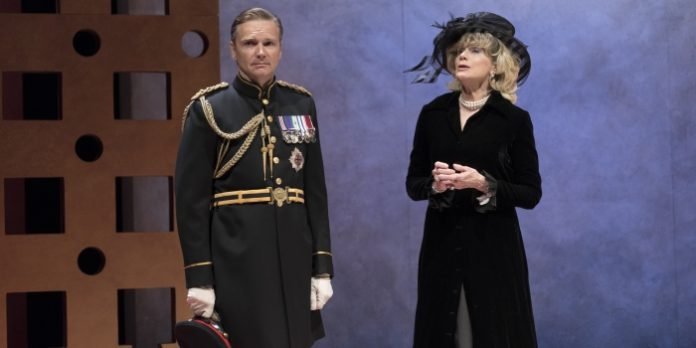King Charles III takes place immediately after the death of Queen Elizabeth II. As Charles finally ascends to the throne (“My life has been a lingering for the throne”), the country is thrown into a constitutional crisis.
Rather than giving royal assent to a new law passed by the government of the day, the newly installed King refuses. Ironically, the law is designed to limit the rights of the British press, the very tabloids who have caused so much grief for the royal family.
As “what if” plays go, on the surface King Charles III should resonate. We are, after all, governed by this largely ceremonial formality in Canada. Could the same fate hold true for the colonies? Can you imagine Julie Payette or Judith Guichon unilaterally dissolving parliament? Not likely, and it quickly deflates Bartlett’s central conceit.
Bartlett also retreads some of the royal antics which have become real-life fodder for a sometimes-salacious media. Like most arguments against inappropriate coverage of the personal lives of the famous though, there is never any mention of the symbiotic relationship between those who report and those who consume. It makes for a very one-sided conversation.
Borrowing from Shakespeare, including the use of blank verse, Bartlett also presents us with the Duchess of York channeling a modern-day Lady Macbeth, and the ghostly apparition of Princess Diana. In those moments, it is as if the playwright is doing the very thing he is railing against. While it can be viewed as satire, to be effective it must have some basis in truth, and neither rings true of what we know of these two women.
It is also tough to care for royals in their privilege by heritage. Attempts at humanizing them with some internal family drama, especially as Prince Harry questions his birthright, feels old, and only adds unnecessarily to an already long three hours. Perhaps making these characters more accessible was director Kevin Bennett’s intention even before the play began, but it was an odd introduction as the actors chatted and waved to the audience.
Even Charles’ internal turmoil seems to be shallow, and while it may be the British stiff-upper-lift, it is tough to feel the dilemma he faces. Without wanting to give away too much, his fate seems to come with a simple resigned acceptance.
Still, there are a few nice moments from this cast. The exchanges between Charles (Ted Cole) and prime minster (Simon Webb) are suitably awkward, and while the appearance of Diana is of questionable taste, Lauren Bowler finds her girlish charm. Katherine Gauthier finds Kate’s elegance, and even as it is hard to believe her real-life counterpart would stoop to such treachery, her transformation felt real.
Under Bennett’s direction though, some of the choices go a little too far into Shakespeare territory, including Christine Willes as the leader of the opposition.
While this production feels all its minutes, its visual elements are gorgeous.
Kevin McAllister’s set is suitably regal and austere, especially against Christopher David Gauthier’s costumes which include exquisitely tailored suits for the men, realistic ceremonial garb, and even designer outfits for Kate.
King Charles III by Mike Bartlett. Directed by Kevin Bennett. An Arts Club Theatre Company production. On stage at the Stanley Industrial Alliance Theatre (2750 Granville St, Vancouver) until November 19. Visit https://artsclub.com for tickets and information.

